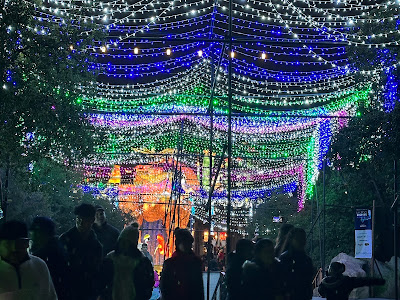Council Settles Argument, Raises More Questions
A team of archaeologists has unearthed a stunning discovery: a long-lost document from an ancient ecumenical church council that lays down the rules for Christmas decorations. The document, dated to the year 325 AD, was found in a hidden chamber under the ruins of the Council of Nicaea, where Christian bishops gathered to settle doctrinal disputes and unify the church.
The document, written in Greek and Latin, reveals that the council not only decided on the nature of Christ and the date of Easter, but also issued a decree on how to celebrate Christmas. According to the decree, Christians are forbidden to remove their Christmas lights and other decorations before the New Year, as this would be a sign of disrespect and ingratitude to God for the gift of his Son. However, they are also mandated to remove them immediately after the New Year, as this would be a sign of detachment and moderation, and a reminder of the transience of earthly things.
The decree states that anyone who violates these rules will incur the wrath of God and the church, and will be subject to excommunication, anathema, and eternal damnation. The document also warns against excessive or ostentatious displays of Christmas decorations, as this would be a sign of pride and vanity, and a temptation to idolatry. The document advises Christians to keep their decorations simple, modest, and tasteful, and to focus on the true meaning of Christmas, which is the birth of Christ, not the birth of consumerism.
The discovery of the document has sent shockwaves throughout the Christian world, as millions of believers are now faced with a dilemma: should they follow the ancient decree, or ignore it as irrelevant and outdated? Some have welcomed the document as a confirmation of their traditions and practices, while others have rejected it as a forgery or a hoax. Some have argued that the document is not binding, as it was never officially ratified or promulgated by the church, while others have claimed that it is part of the sacred tradition, and therefore infallible and authoritative.
The Vatican has not yet issued an official statement on the document, but sources say that Pope Francis is studying it carefully and consulting with experts and advisers. The pope is expected to address the issue in his upcoming Christmas message, and to offer guidance and clarity to the faithful. Until then, Christians around the world are left to wonder: should they keep their Christmas lights on, or turn them off?

Comments
Post a Comment